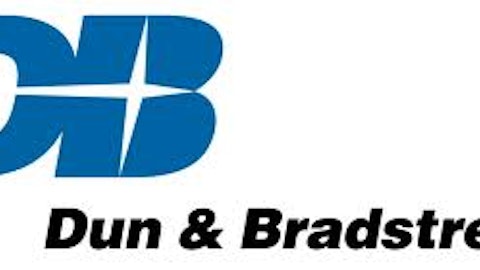While reading through earnings calls over the past week, I have noticed a theme: companies from all industries are still very concerned with what the ratings agencies think of them. Below are a few quotes that stood out to me.

“We have reviewed the plan with the rating agencies . . .” – Liam McGee, CEO of Hartford Financial Services Group Inc (NYSE: HIG), Q4 Earnings Call
“In addition, we presented a comprehensive overview of our strategy to the rating agencies. . .” – Michael S. Taff, CFO of Flowserve Corporation (NYSE: FLS), Q4 2012 Earnings Call
“As we were finalizing our budget for 2013 and working with the rating agencies, it became apparent that in order to maintain investment grade ratings, we need to reduce investment.” – Glen Post, CEO of CenturyLink, Inc. (NYSE: CTL), Q4 2012 Earnings Call
Recently the US Justice Department filed a lawsuit against S&P, and several state attorneys general are reported to also be contemplating lawsuits. The Justice Department suit is seeking damages of $5 billion from S&P alone. They have not ruled out lawsuits against other ratings agencies as well. As a result, both Moody’s Corporation (NYSE:MCO) and The McGraw-Hill Companies, Inc. (NYSE:MHP) (the parent company of S&P) have had a rough February, down 12% and 20%, respectively, thus far.
The McGraw-Hill Companies, Inc. (NYSE:MHP) has lost roughly $5 billion in market cap this month, which means the stock market is pricing in the DoJ winning the lawsuit and the company having to pay out the entire sum immediately with no lingering damage to their future earnings. I don’t believe the first part of that statement is feasible. During their recent earnings call, McGraw-Hill laid out a compelling legal defense against the charges levied by the DoJ. I think these defenses will, at the very least, prevent the entire amount the DoJ is asking for from being levied against S&P. As with all high-profile lawsuits, this will probably be tied up in court for years to come, delaying any payments. Also, McGraw-Hill was confident enough in their defense that they decided not to settle this case and instead go to court.
The current expectation is that the DoJ will not announce a suit against Moody’s Corporation (NYSE:MCO) or other ratings agencies until their case with S&P is settled. That means that if the case against S&P goes badly for the DoJ, no legal action at all would be taken against Moody’s or others.
In addition to the risks from the DoJ and state attorneys general, hedge fund manager David Einhorn has announced that he is short both McGraw-Hill and Moody’s. If he takes an opportunity to expand on his short thesis in a presentation or conference, that could also hurt shares as traders short the stock based on his more public short thesis. As the article mentions, though, he has been short Moody’s since early last year, over which time the stock has rallied over 40%.
After seeing how many companies continue to put emphasis on the ratings agencies’ views, I don’t think that this suit will change anything for the agencies, their business models, or their profits. There are simply no viable alternatives that make sense. Also, large, well-respected companies would be slow to adopt any new ratings models because the potential damage from incorrectly abandoning the current ratings system is far greater than the potential benefits of being one of the first to adopt a new model.
There are a lot of headline risks in Moody’s and McGraw-Hill right now, but the stocks appear to be pricing in too much of an impact from them. If the stocks get hit any further from these headlines, they become attractive long-term buys for investors who can handle the volatility.
The article Ratings Agencies Aren’t Going Away Any Time Soon originally appeared on Fool.com and is written by Adam Jones.
Copyright © 1995 – 2013 The Motley Fool, LLC. All rights reserved. The Motley Fool has a disclosure policy.




